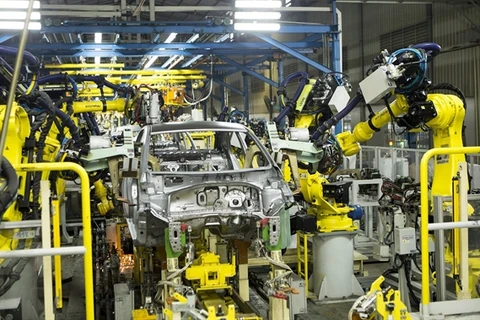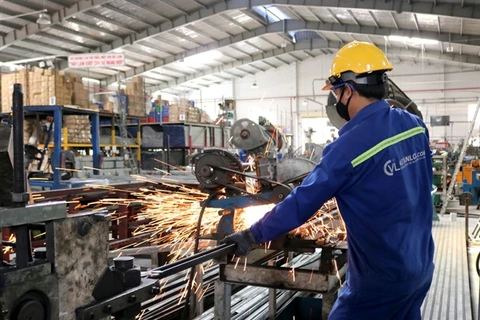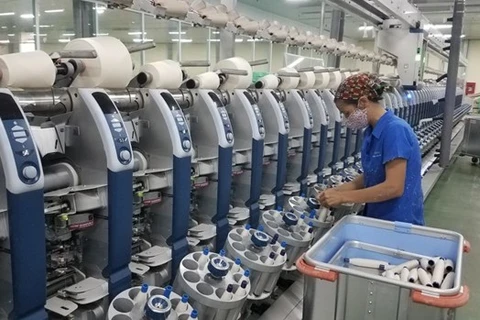 Supporting industries play a critically important role in attracting investment to processing and manufacturing. (Illustrative photo: VNA)
Supporting industries play a critically important role in attracting investment to processing and manufacturing. (Illustrative photo: VNA) Le Hoang Tai, Deputy Director of the Vietnam Trade Promotion Agency under the Ministry of Industry and Trade (MoIT), said the processing and manufacturing sector is the magnet to the majority of foreign direct investment (FDI) as seen in the 14.96 billion USD or 54% of the total registered capital in the first 11 months of 2022.
To attract investment to processing and manufacturing, supporting industries which supply materials, components, and spare parts have a critically important role to play. Given this, the MoIT has issued many policies to help with the industries’ development, according to Le Huyen Nga, head of the division for supporting industries at the MoIT’s Industry Agency.
Certain results have been recorded in developing domestic enterprises’ capacity, seeking new markets, and connecting local companies with FDI firms. Domestic businesses in supporting industies are now able to produce items with high technological content meeting requirements of final manufacturers in supply chains.
However, Nga noted, the existing policies for developing supporting industries still lack mechanisms efficient enough to connect suppliers and manufacturers, capitalise on the capacity of manufacturers (mainly FDI firms) to improve the added value of the domestic content in finished products, or develop supply chains in the domestic market. They are also not attractive enough to draw major foreign investors to supporting industries.
In the time ahead, those policies will be supplemented with many preferential mechanisms and assistance in terms of finance, research and development, technology transfer, and production management.
It is also necessary to build a law for facilitating key industries and developing both domestic and export markets for industrial products, she went on, adding that a more effective credit policy is also needed for businesses in supporting industries.
Echoing the view, Truong Chi Binh, Vice Chairman and Secretary General of the Vietnam Association for Supporting Industries, said the production capacity of Vietnamese businesses in supporting industries is not low, but they are still unable to compete with foreign rivals due to high production costs.
Therefore, reducing production costs is the key to deeper engagement in supply chains, he opined, suggesting businesses be given better access to credit, land, and factory building procedures.
Binh also recommended state agencies form clusters and ecosystems for companies in supporting industries, help them connect with foreign and multinational enterprises, and carry out policies effectively to create optimal conditions for businesses to focus on production./.
VNA
























